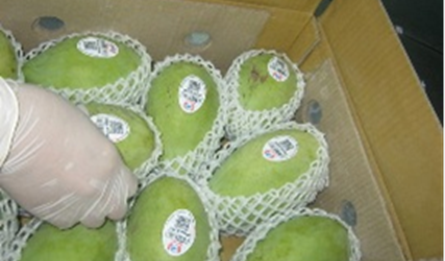La CIPF abre el camino hacia una "nueva generación" de normas fitosanitarias
Posted on Mar, 10 Jun 2025, 06:49

©FAO/Anita Tibasaaga. Participantes en el seminario celebrado en la sede de la FAO.
Roma, 30 de mayo de 2025. La Convención Internacional de Protección Fitosanitaria (CIPF) celebró recientemente un seminario interno de la División de Producción y Protección Vegetal de la FAO (NSP) sobre “La nueva generación de normas de la CIPF: una visión general de la CIPF y sus normas para productos”, que reunió a más de 60 participantes para analizar el panorama en evolución de la sanidad vegetal a nivel mundial. El seminario, que forma parte de la serie de eventos organizados por la división NSP, puso de relieve el enfoque innovador de la CIPF para el desarrollo de medidas fitosanitarias específicas para productos.
En sus palabras de apertura, Chikelu Mba, director adjunto de la NSP, destacó los tres pilares fundamentales de la misma, siendo la sanidad vegetal uno de ellos. Asimismo, subrayó el papel crucial de la sanidad vegetal para lograr sistemas agrícolas sostenibles y garantizar la seguridad alimentaria.
Avetik Nersisyan, responsable de la Unidad de Establecimiento de Normas de la CIPF, presentó una visión general de la estructura, gobernanza y programa técnico de trabajo de la Convención. Asimismo, enfatizó que el desarrollo de normas específicas por producto representa un avance estratégico en el marco fitosanitario internacional.
Por su parte, Adriana G. Moreira, directora adjunta de la misma unidad, expuso los fundamentos y principios que sustentan esta nueva generación de normas. En este sentido, insistió en que las normas internacionales son esenciales para establecer condiciones equitativas, garantizando que las medidas fitosanitarias estén justificadas científicamente, sean técnicamente viables y no constituyan obstáculos injustificados al comercio.
“Las normas no se desarrollan por su cuenta”, afirmó la Sra. Moreira. “Deben estar técnica y económicamente justificadas, facilitando el comercio y al mismo tiempo protegiendo los recursos vegetales.”
La “nueva generación” de normas específicas por producto de la CIPF tiene como objetivo armonizar las medidas fitosanitarias entre los países, mejorar la eficiencia en el uso de los recursos y reducir las cargas regulatorias, minimizar la duplicación y los requisitos redundantes, promover el principio de equivalencia de medidas fitosanitarias y crear nuevas oportunidades para un comercio seguro. Durante el seminario se aclaró que estas normas no son vinculantes y sirven como referencia técnica para apoyar a las autoridades fitosanitarias nacionales. Es importante destacar que no sustituyen al análisis de riesgo de plagas (ARP) ni imponen nuevas obligaciones. En su lugar, ofrecen opciones justificadas científicamente que los países pueden considerar durante el ARP o como base para negociaciones bilaterales Estas normas son desarrolladas por el Grupo técnico sobre normas para productos (TPCS) bajo la supervisión del Comité de Normas (CN) de la CIPF.

© MPI Nueva Zelandia/ Joanne Wilson. Fruta de mango,
Avetik Nersisyan señaló un hito clave alcanzado durante la CMF 19 en 2025: la adopción del primer anexo específico por producto, la NIMF 46 Normas para medidas fitosanitarias específicas para productos, que aborda el movimiento internacional de fruta fresca de mango (Mangifera indica). Adriana Moreira también informó que los proyectos de norma para banano (Musa spp.) y taro fresco (Colocasia esculenta) han sido aprobados para consulta, y que se están considerando futuras normas para cítricos (Citrus spp.) y semillas de frijol (Phaseolus vulgaris).
Este seminario refleja el esfuerzo continuo de la Secretaría de la CIPF por compartir información y conocimientos en línea con los objetivos de la Convención: fortalecer los sistemas fitosanitarios mundiales mediante enfoques innovadores, prácticos e inclusivos, que contribuyan a un comercio internacional más previsible y seguro de plantas y productos vegetales.
¿Desea obtener más información sobre las normas sobre productos del CIPF?

